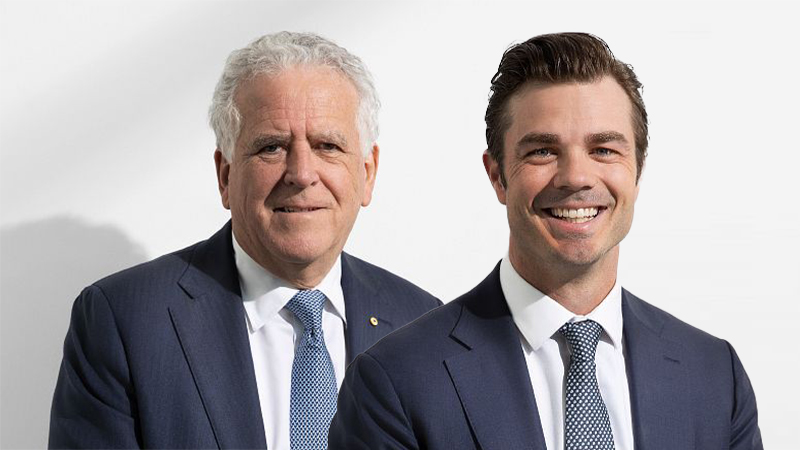A peculiar paradox exists in financial markets. Inefficiency abounds, yet most active managers fail to outperform long term.
Between 2010 to 2019, the average annual low-high variation of a stock price within the S&P 500 index was 50%. With business fundamentals only changing incrementally year-by-year, and discount rates less volatile through this period, did listed company fair values really shift this much? Or rather is it indicative of how sentiment can drive price movements in the short-term?
The opportunity to exploit pricing inefficiency has attracted a global mass of highly competitive fund managers all seeking to outperform the market. And given the persistence (every year), breadth (S&P 500 constituents) and magnitude (50% low-high) of variance in stock prices, a natural presumption might be that a large percentage of professionals add value.
But the data suggests otherwise, with S&P research showing that 95% of international equity funds underperformed over a 10-year horizon. It’s no wonder major asset allocators are increasingly allocating capital away from active towards passive. So how do you back a manager when history suggests the average selection will disappoint?
Underperformance drivers
One of the critical academic assumptions in markets is that professional investors are perfectly rational. But in reality they operate with incomplete information and are continually making decisions with uncertain outcomes.
Human decision-making follows evolutionary constructs and this extends to investor sentiment. Recent market experience directly impacts how investors respond to uncertainty, resulting in comfort-adjusted decisions.
See more: Are decumulation strategies fit for purpose?
Take a bull market. Retail investors expand dreams of retirement, and continual rewards one year influence behaviour the next. Meanwhile, institutional fund managers – whose client satisfaction is heavily influenced by the latest one-year market comparison – hunt for upside.
But in bear markets psychology evolves. Retail investors experiencing the pain of losses, optimise decisions toward wealth preservation to reduce discomfort, and institutional investors get defensive to minimise underperformance, outflows and career risk.
Overcoming behavioural shortcomings requires asset allocators to identify professional managers with systemised processes to dispassionately generate ideas, and a culture designed to manage human fallibility.
A firm-wide articulation of why and how
For example, every manager must have a clear articulation of why their investment philosophy drives alpha.
A helpful proof point is how few multi-fund managers have stood the test of time. The Achilles’ heel is that the loudest voice often becomes the most influential, and tends to be whose investment style has been in vogue. In contrast, those whose ideas have failed to perform for some years due to style headwinds see falling influence and abandon convictions.
A better approach is to let asset allocators themselves blend the styles together, finding the best performing fund houses specialising in each singular style. Allocators should question investment managers and team buy-in on their core philosophy – meeting team members individually, testing historic theses and the logic of sell decisions.
Overcoming fallibility
Next, all managers are fallible humans, susceptible to emotions and bias. To manage these shortcomings, managers should create guardrails that hold a strategy to account.
Asset allocators should seek transparency into the systems used through the entire idea generation, research, and portfolio management process – looking back in history to see evidence of how those processes were used through periods of heightened market volatility, when misjudgment is more likely.
See also: How non-dom clients will be affected by UK tax changes
This might also include obtaining access to fund manager proprietary research documents that support historic investments, and studying the research on the position through time.
A lot can be gained by observing the depth to which the analyst researched new risks and adjusted forecasts as the thesis played out – or broke down.
Admitting mistakes
And finally, there’s an old saying in fund management – “bad news travels slowly”.
For listed companies, perhaps it explains why the first profit downgrade is often followed by more, and in markets it links to why investors hang on to investment theses despite new, disconfirming evidence.
The psychological factors that prevent a pragmatic acceptance of bad news can come from multiple places – a fear of looking stupid, an urge to appear consistent, and endowment towards an idea with significant historic research effort.
But investing is the business of making future assessments based on incomplete information. We are fallible of being on the wrong side of future probable outcomes – despite our best research-based efforts. Optimal cultures accept this, embracing bad news so teams can act pragmatically.
See also: Investors are too optimistic about the second half of the year, warn Natixis strategists
Questioning managers about historic mistakes can uncover whether there is substance behind the sales pitch. Investors unable to engage in thoughtful discussion are blind to their own shortcomings or contributing to ego-driven cultures.
Dehumanising investment
S&P data tells us that skilled managers do exist. They’re just rare – 5-15% of those that have survived over 10 years. Herein lies the active management opportunity, but a skilled selection process is necessary to increase the odds of backing a manager with a repeatable source of alpha.
To overcome the involuntary nature by which humans are hard-wired to adapt decision making in response to recent experience, a good investment process needs to be dehumanised.
Dr Manny Pohl (pictured left), founder, and Damon Callaghan, partner, at ECP Asset Management








